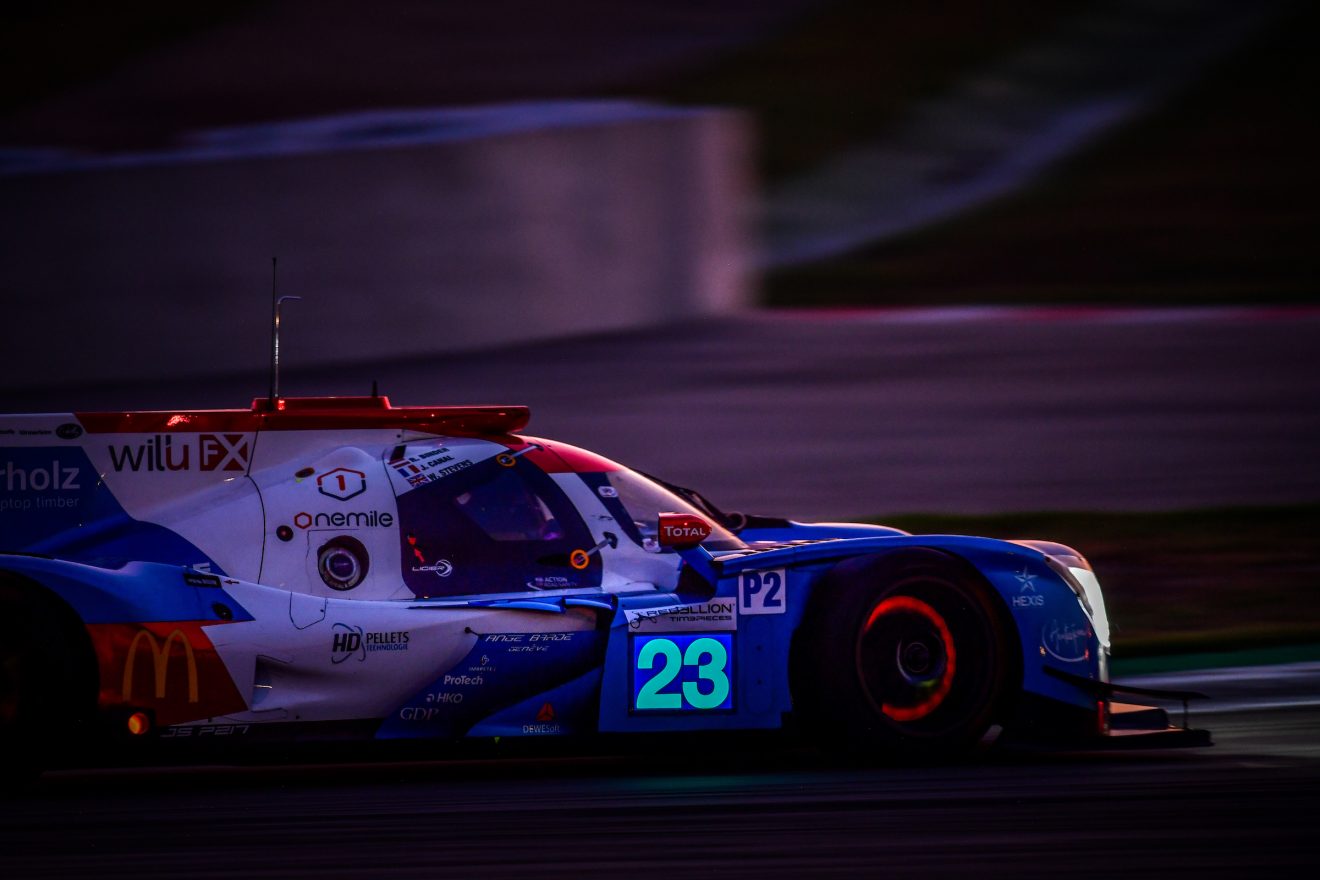Endurance racing demands speed, consistency and stamina as well as an understanding of the finer technological points, because the material components are ultimately the determining factor. Ahead of the summer break, Rene Binder talked to us about long-term prospects.
Question: As your season in the ELMS and IMSA series reaches the halfway point, is there a single word that sums it up so far?
Rene Binder: “Hmm, that’s a tough one. There are some aspects that were disappointing and others that give us confidence for the future. Unfortunately, that doesn’t include the last race before the summer break in Barcelona. Although I am in a very strong team at Panis Barthez Compétition, our car is simply not capable of producing the results in the European Le Mans Series at the moment. The most we could have managed on the basis of the resources at our disposal was a Top Five finish, but then my team-mate Julien Canal was unfortunately handed a drive-through penalty for his part in a collision.”
Question: The team led by Olivier Panis was producing podium finishes in 2018. What do you think has gone wrong?
Rene Binder: “The car has too little downforce, and yet it still lacks top speed on the straights, which was a major handicap at Le Mans. I keep hearing that our driver squad is much stronger than last year, but unfortunately there is still no commensurate result to show for that. We just need to get the car right and to have a little patience.”
Question: And what about the driver factor?
Rene Binder: “That’s important, too. You’re constantly working with the material at hand to improve it. And when you’ve finished with the setup, you still have to get the most out of your car on the track. As a driver, of course, you always hope that you will get your hands on a car that is capable of victory and then go out and get it.”
Question: Does that also apply to your IMSA series project?
Rene Binder: “We’re starting out from a different set of parameters there. Juncos Racing have a competitive package in the shape of the Cadillac DPi-V.R, although it has to be said that we’re up against the really big teams such as Penske, Joest and Wayne-Taylor Racing in the premier class of the Daytona Prototypes International. Assuming they all get through, the front slots on the grid are more or less reserved. Ultimately, all you can do as a driver is try your best and impress on the basis of your personal performance.”
Question: So, to rephrase that, would you say that this sport is inevitably about being in the right place at the right time?
Rene Binder: “That’s exactly the way it is. There are plenty of good drivers who are capable of winning in a competitive car. But only a few get that opportunity. Just imagine if Niki Lauda hadn’t brought Lewis Hamilton across from McLaren to Mercedes when he did. It’s unlikely that he would be the five-time world champion that he is today.”
Question: You have already raced against some of the current crop of Grand Prix drivers – Gasly, Albon, Giovinazzi, Magnussen and Leclerc. Who was the best of them?
Rene Binder: “At that time I was preoccupied with my own performance, but these are all drivers who have earned their place in Formula 1. Of course, Leclerc is currently outshining everyone else – he has the makings of a world champion. But let’s not fool ourselves: put them all in the same car and there is hardly anyone who would be two or three tenths faster than the others. As for the cars, though, there are huge differences between them.”
Question: Everyone knows that you are serenity personified, but what are your thoughts at the moment about missed opportunities and former colleagues who have since made their way up the career ladder?
Rene Binder: “I am completely at peace with myself, and I’m pleased whenever a former team-mate such as Pietro Fittipaldi gets himself established in the DTM or as a reserve driver in Formula 1. Ultimately, it’s just a confirmation of my own innate ability, because I know that these are people I managed to compete on the same level with. When I was in my teens, my education was not exclusively focused on racing, because I also took the academic side seriously.”
Question: Is there anything you would do differently if you had your time over again?
Rene Binder: “Certainly not in terms of education and training. I learned a lot in the World Series, so maybe it would have been better if I’d gone into that first before going into F2. In truth, the whole system has been taken to such an extreme that experts are already writing you off if you haven’t made it into Formula 1 by the age of 16. I’ve taken a different path through life, and I’m glad that I am not ‘just’ a racing driver.”
Question: Apart from your job at Binderholz, you now have a few weeks to recharge your batteries. What else is in store for you in the second half of the season?
Rene Binder: “In the IMSA series, I have only the legendary Petit Le Mans in my diary. This is a 10-hour race on a track near Atlanta that is considered to be one of the most beautiful in the world. And in the ELMS, after the summer break, we’ll be going to Silverstone, then on to Spa and, at the end of October, to Portimão. On both fronts, the teams have some important decisions to make, so there won’t be much time for relaxation.”
Thank you for the interview.
